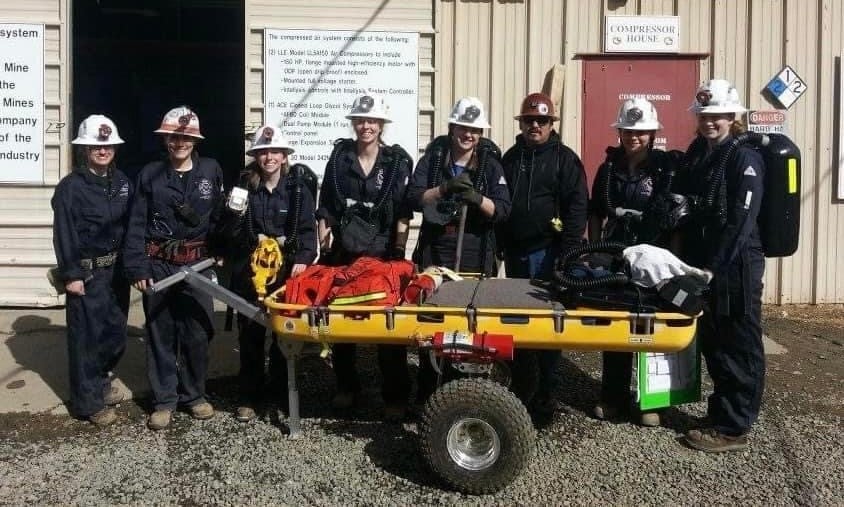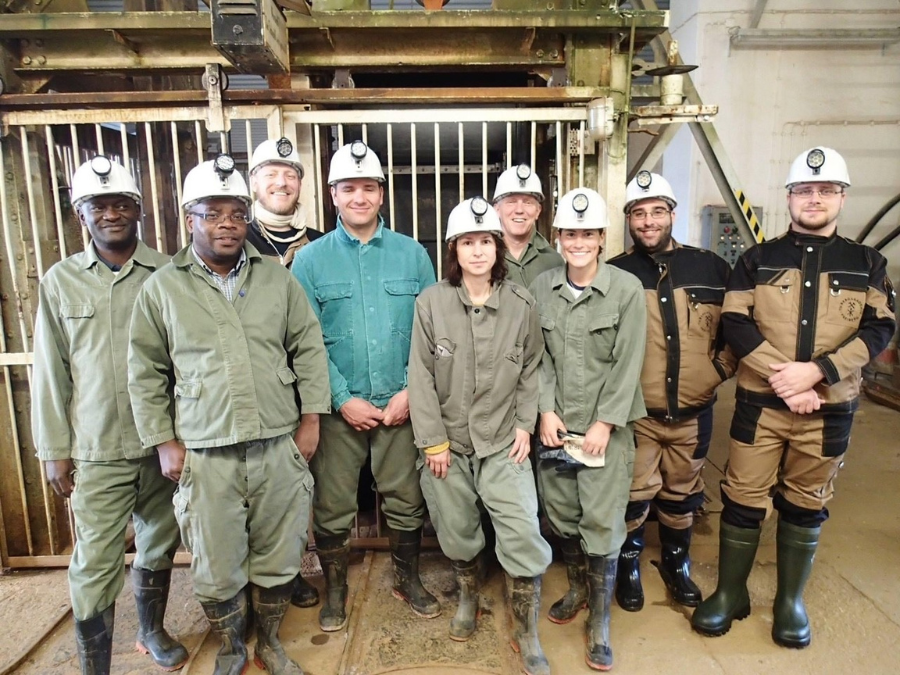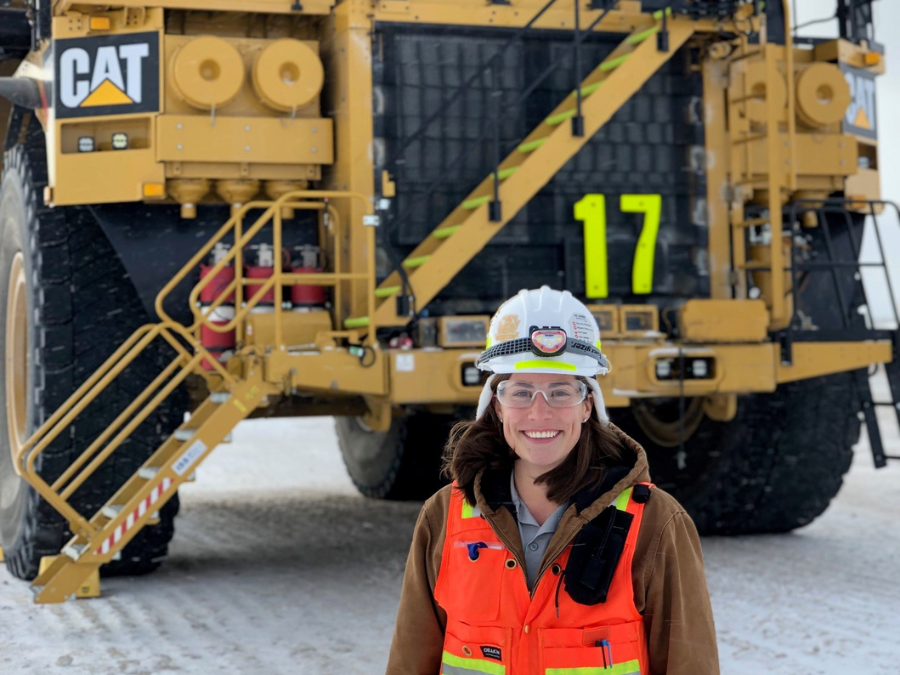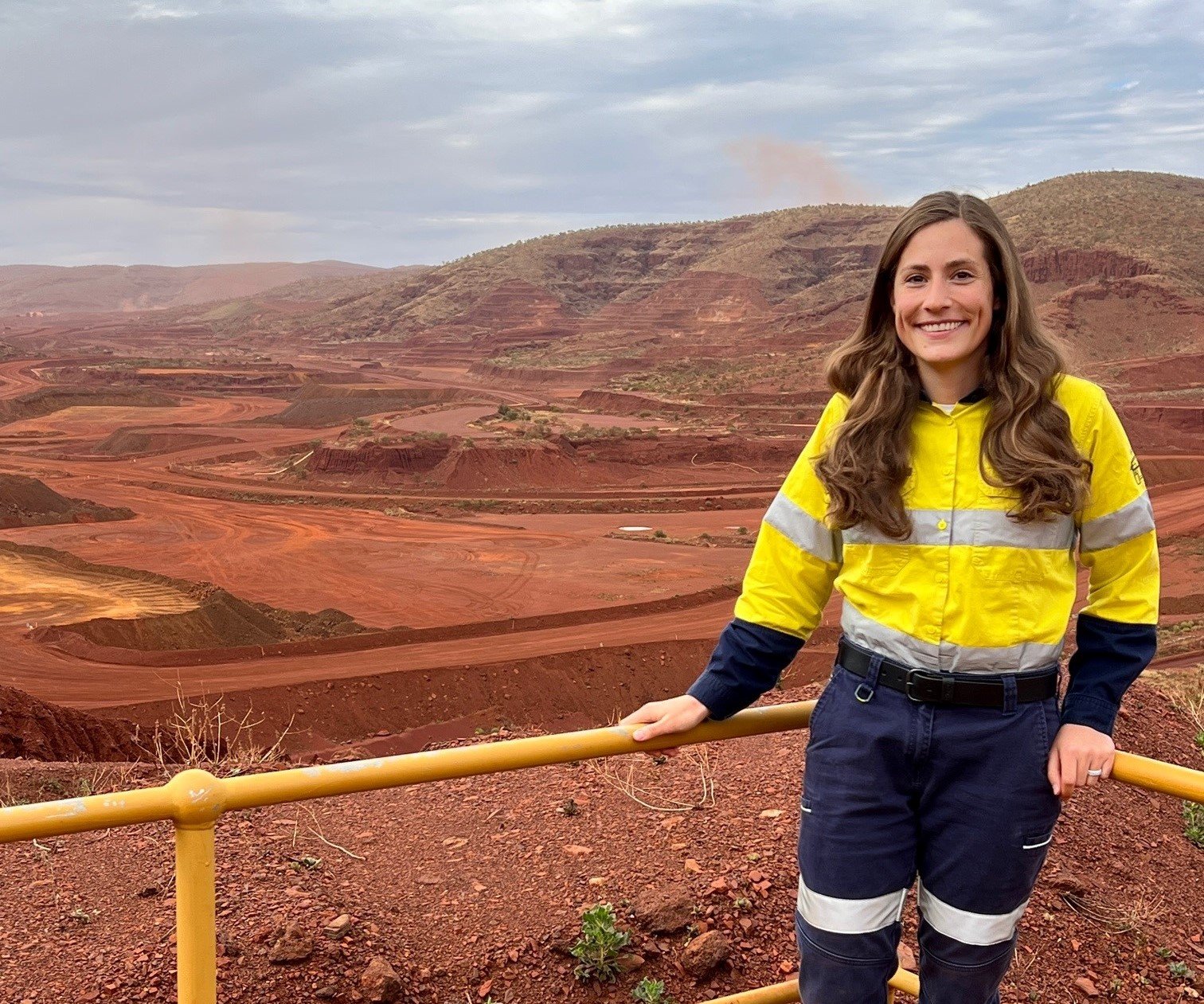Unlock Your Confidence: Chelsea Gilbert's 6 Tips to Crush Imposter Syndrome
Recently, I overheard some colleagues discussing an article they had just read. “Imposter syndrome?” One of them asked the other. “What’s that?”
“Dunno, mate, never heard of it.”
“Chels,” he said, turning to me. “Do you know what that is?”
Initially, I didn’t know how to answer. “It’s when you think you don’t belong somewhere. That you haven’t earned it, and it’s only a matter of time before everyone figures out that you don’t know what you’re doing.”
“Wow,” they replied. “Why would someone choose to think that way?”
The question stuck in my mind for months. Even today, it still echoes.
At first, I couldn’t believe they hadn’t heard of this phenomenon. This feeling that I have come to understand all-too-well in the ever-advancing, high-paced, high-intensity realm of mining operations and technology adoption.

The more I thought about it, the more I considered the question they posed: why would anyone choose to think such negative thoughts about their own capability? Great question. Why do we? What is it about feeling out-of-place that creates such strong apprehensions of self-doubt and second guessing?
These intrusive thoughts come in many forms, but a similarity is leaving any comfort zone and setting out into the unknown, whether it’s a new school, new job, new company, new country, new language – new things can be exciting but often terrifying. When everyone else seems to have it figured out, where do we fit in?

I think most engineers realise their affinity towards math and science at a young age, helping to steer them towards choosing that path of study. I was the opposite, enjoying reading, writing, and art more than calculus or physics.
Still, I chose engineering – and realised I was way over my head in the first few days of university. One of only a handful of women, and certainly feeling like the dumbest one in the class, the first few years were a struggle for me.
I had to retake several courses, some twice, before finally understanding the concepts that everyone else around me seemed to pick up so effortlessly.
My thoughts were often centered on my failures: Why was I struggling so much? What was I doing here, if I clearly didn’t belong? Most of these people didn’t look like me, and certainly no one’s thinking the same way I do.

Even though thoughts of dropping out were frequent, I persevered; perhaps out of a stubbornness to prove to myself that I could, in fact, get through it.
The mining-specific classes proved more likable than their general engineering counterparts, and I began to find my groove.
Eventually, I became more comfortable as a network of friends and professors helped pave a path forward where I belonged. I found comradery in the school’s student chapter of Society for Mining, Metallurgy, and Exploration (SME, similar to AusIMM) and enjoyed meeting others who were equally passionate about mining.
I joined the Mining Games team and the world’s first (that we know of) all-women’s student underground Mine Rescue team.
I had several great summer internships: working at the KSM Gold Project in British Columbia with Seabridge, with Mosaic’s underground potash mine in New Mexico, the Cripple Creek & Victor Gold Mine gold mine with AngloGold-Ashanti, studying ventilation at TU Bergakademie Freiberg in Germany, and Joy Global in Wisconsin, which opened my eyes to applications engineering.
Finally having a network of like-minded people allowed for a level of authenticity I felt I couldn’t display before. When you’re not petrified about how others are perceiving you, unable to act due to you thinking they’ll laugh at you for trying: what a liberating feeling to finally breathe and even have the confidence to speak up and contribute ideas.

Then, graduation came – after a tremendous amount of effort, networking, extracurriculars: I had a job I was very much looking forward to. I was to join Caterpillar in a rotational program within the mining technology division. It was a difficult journey, but I worked hard and felt I had earned the role, and was elated to start.
One comment from a classmate shattered it in a moment: “You only got that position because you’re a girl.”
Confidence diminished, I again began second-guessing what I was doing. Was I truly suited for this, or was I simply a diversity hire?
What helped me get over this hump was my first supervisor – a woman who had heard those comments before and knew exactly what I needed to hear to pull me out of it. She hyped me up, counted off my accomplishments, and told me I had indeed earned the position I was in. I belonged here.
Even with her stalwart support, it has taken a long time to overcome those relentless thoughts of imperfection and “not good enough.” It’s been a roller coaster of feeling inadequate, working to prove those ideas wrong, and then being thrust into a new situation and starting all over again.

I’d say it took years to shake these comments, but truth is, I’m still working on it each day. I tend to forget the occasions where I can quickly solve a problem, but the moments where I can’t are seared into my memory.
I can vividly recall feeling the weight of the world on my shoulders when a rope shovel’s software needed fixing (“if I don’t figure this out, production is down”), or a crusher pocket needed validation, but I had never done it before (“how will I know which steps to take?”), or when I moved across the world as an advertised expert in new equipment integration (“they’ll see I’m not the expert for sure”) and have felt the imposter syndrome creep back in.

There have been plenty of conversations, decisions, mistakes, learning opportunities, and new and repeated experiences to build upon, and I believe it will continue to be a journey. Some of my worst days at work have resulted in the greatest learning opportunities. After all, if we did know everything, there’d be no fun in the learning, discovery, and growth that comes from leaving the familiar and striding out into the unknown.
Now, 15 years after I started on this path in mining, hearing comments about imposter syndrome and its consequences, I ask myself: is it a choice I’m making to feel this way, or is it simply the way it is?
Can I force myself out of these ruts on mental power alone?
I don’t think so. The power of positive thought shouldn’t be underestimated, but the industry and its challenges are dynamic, and our adaptation to how we navigate them must be dynamic, too. Based on my own experiences so far and the advice of others, here’s the top things I’ve found help me counteract these negative thoughts:
1. Friendship, mentorship, and good colleagues are essential
- We’re not as isolated as we might think – having someone to help bounce ideas off, speak with, complain to, and guide you is invaluable
- Find someone who will build you up. Could be your manager, a co-worker, an experienced operator to help show you the ropes, your partner, your friends
- Can come from someone who knows you, or knows the industry. Offers constructive feedback and includes you as part of the team
- Then, your own confidence can blossom, and you can pay it forward to other new people, including them in your journey and experiences
2. Finding the strength within yourself to be your biggest advocate
- Keep an inner dialogue like you would to encourage your best friend
- Would you say such harsh things to them? Why would you say them to yourself?
- Don’t be afraid or intimidated to ask for help
3. Everyone has their own definitions of what’s basic and what’s challenging
- What you think is difficult, someone else thinks is easy – there was a time when this subject was new to them, too
- There’s many things you consider second nature now that once seemed insurmountable
4. Embrace your differences
- Your journey has been unique and will shape your perspective as you navigate through your career
- No one else has had the same combination of experiences that you have
- Don’t underestimate diversity of thought!
5. More uncomfortable/stretch opportunities will help you answer “I don’t know” less
- Must give yourself the opportunity to fail and learn from it
6. Strive to make the path easier for those who will come after you
- Be intentionally inclusive of those who might be struggling
- Empower them, be authentic, and share your own story
- If you’ve had a good mentor, use them as a model for your behavior and pay it forward to students and young professionals. If not, be the mentor you wish you would’ve had when you started your journey
Chelsea Gilbert
Chelsea graduated with double Master degrees in Mining & Earth Systems Engineering and Mineral Exploration from the Colorado School of Mines in 2016, and a BS in Mining Engineering from CSM in 2014. She also spent a semester studying at the Camborne School of Mines in Cornwall, UK in 2012.
Chelsea has worked in a variety of project stages all over the world, including remote FIFO exploration camps in Canada, as a mining engineer in surface gold and underground potash mines, researching ventilation modeling in Germany, and as an application engineer with Joy Global.
Caterpillar is supporting and participating nationally for AusIMM's International Women's Day Event Series. For more inspiring stories like Chelsea's, follow AusIMM on social media using the hashtag #CelebratingWomeninMining or catch up via our latest news!

